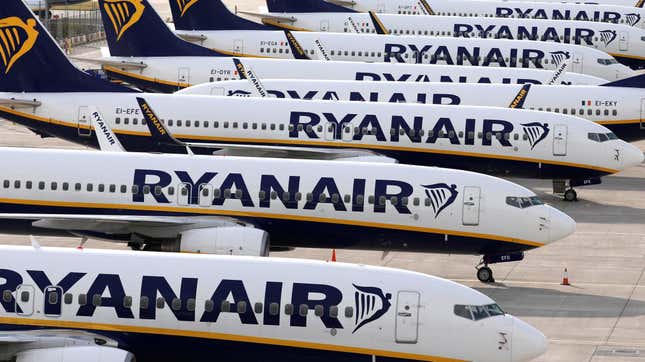
In This Story
Ryanair is disappointed in its business performance, and investors are in turn disappointed in Ryanair. The Irish budget airline’s stock is down 17% after it dropped a weaker-than-expected quarterly earnings report. Revenue came in at €3.6 billion ($4 billion), essentially the same as last year. But profits were nearly halved to €336 billion. CEO Michael O’Leary said that it’s getting more people to fly on its planes, but also having to work very hard to do so.
“Traffic growth is strong, up 10% to 55 million [passengers], but it’s only strong at a price,” he said on the company’s earnings call. “And we’re having to repeatedly stimulate fares and bookings. And the close-in fares and performance, the close-in bookings has been disappointing and materially weaker than we’ve expected, particularly on the way into the peak months of July, August and September.”
On top of softer demand, the company was also dealing with higher labor costs and laid a bit of blame on Boeing’s delivery delays, a longtime sore spot for O’Leary. Though he has stood by the company after the door plug on a 737 Max 9 blew out mid-flight this year, he has also been telling the planemaker to get its act together for years.
Still, he told investors that his airline’s customers appear to be struggling a bit more than in the early parts of the COVID-19-era economic recovery — Reuters reports that years of inflation and flagging economic growth are catching up with people in the European Union. In that case, maybe having to operate fewer jetliner’s could work out in Ryanair’s favor.
“We will have less capacity into summer 2025 than we are originally scheduled to have with our Boeing delivery, and then, we’re into two years of essentially no capacity growth at all” O’Leary said. “And if the consumer is going to be under pressure for the next year or 18 months, that might not be the worst place to be.”